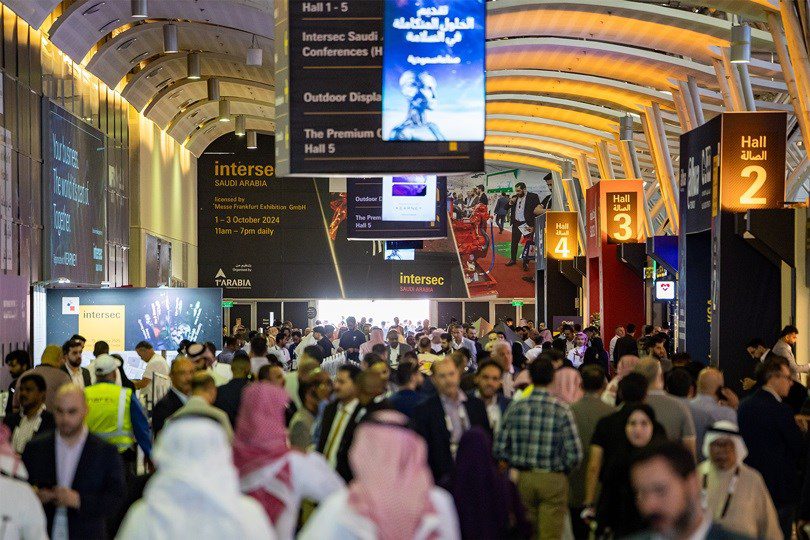
Serving as hubs for three rapidly expanding major airlines and at least as many mid-size ones, the airports of the GCC countries are seeing larger and larger numbers of passengers pass through their gates annually. This continuous increase in passenger numbers has led to increased security dilemmas and a growing demand for more efficient passenger processing systems to keep these transport hubs functioning smoothly.
Passenger traffic in the GCC has grown at a CAGR of 10% between 2002 and 2010, significantly higher than the global average of between 1% and 3%. With airports around the region feeling the pressure of handling growing passenger numbers, ambitious expansion plans worth US$119 billion have been put in place in order to meet projected demand. On the cards are new terminals and cargo handling complexes as well as extensions to existing facilities around the region.
Dubai is currently executing its planned investment of US$7.73 billion (AED28.4 billion) to implement the fourth phase ofDubaiAirportexpansion and increase its capacity to over 90 million passengers annually to meet the future growth needs. Abu Dhabi Airports Company (ADAC) is ploughing in a similar amount to expand annual capacity to 40 million passengers. Even the smaller UAE airports are investing in order to boost facilities and expansion. Sharjah plans to spend $136 million (AED500 million), whileFujairahhas set aside $43.5 million (AED160 million).
Saudi Arabia is set to invest approximately $7.35 billion (SR27 billion) on new airport projects while in Oman, both the Muscat and Salalah airports are being developed at a total cost of $326 million (OR125.7 million) to handle 48 and 10 million passengers annually. Ongoing expansion inDohaand planned enhancement of passenger handling capacity inKuwaitare also expected to enhance the region’s passenger throughput.*
With the number of travellers increasing in the region every year and changing security requirements, it has become imperative for airports to guarantee efficient handling processes to ensure smooth traffic flow and minimise procedural delays. This has led to growing demand for passenger processing systems which can streamline the flow of people and their baggage, improving efficiency and enhancing traffic handling capacities.
The upcoming Aviation Security Summit which will be held alongside Intersec, taking place in Dubai in January 2013 will feature regional and international speakers focusing on improving passenger processing while streamlining security.
However, despite all the advances in technology and the latest in equipment every airport is only as good as the people who run the various processes. Airports place great emphasis on training and creating awareness among staff on the importance of efficient passenger handling as well as thorough security and baggage handling procedures.
“With the tremendous increase in traffic at the region’s airports and with the persistent and increasingly innovative approaches to unlawful interference with the aviation system it is vitally important that the security staff handling the various security screening procedures are able to do so in an error tolerant and threat mitigating manner. Awareness of the importance of ensuring fool-proof security while at the same time providing passengers with efficient service is continually and even more so of the utmost importance,” said Andrew Mc Clumpha, Director of Leigh Fisher. Mc Clumpha will present on the human factors in aviation security operations during the summit.
“Security is a major concern the world over and an interesting business area,” said Ahmed Pauwels, CEO of Epoc Messe Frankfurt, organiser ofIntersec. “This region has developed as a global hub with increased passenger numbers. Implementing smooth systems is an essential element of the growth of our regional airports,” he added.
Airport security systems and technologies at modern airports have changed dramatically over the years. New passenger processes such as self check-in, baggage drop and online ticketing have lessened the load on airport support staff and enhanced the passenger handling experience. Today airports are increasingly turning to new technology to create an intelligent environment that allows easier access to information and enables portability of processing using hand-held devices, smartphones and other technology.
Intersec 2013 will run from January 15 to 17, 2013 at the Dubai International Convention and Exhibition Centre. The exhibition represents the regional security, safety and fire protection industries. As well as the Aviation Security Summit, the conference programme also includes a Fire Safety, Standards and Regulations Forum.
Contact
www.intersecexpo.com




























